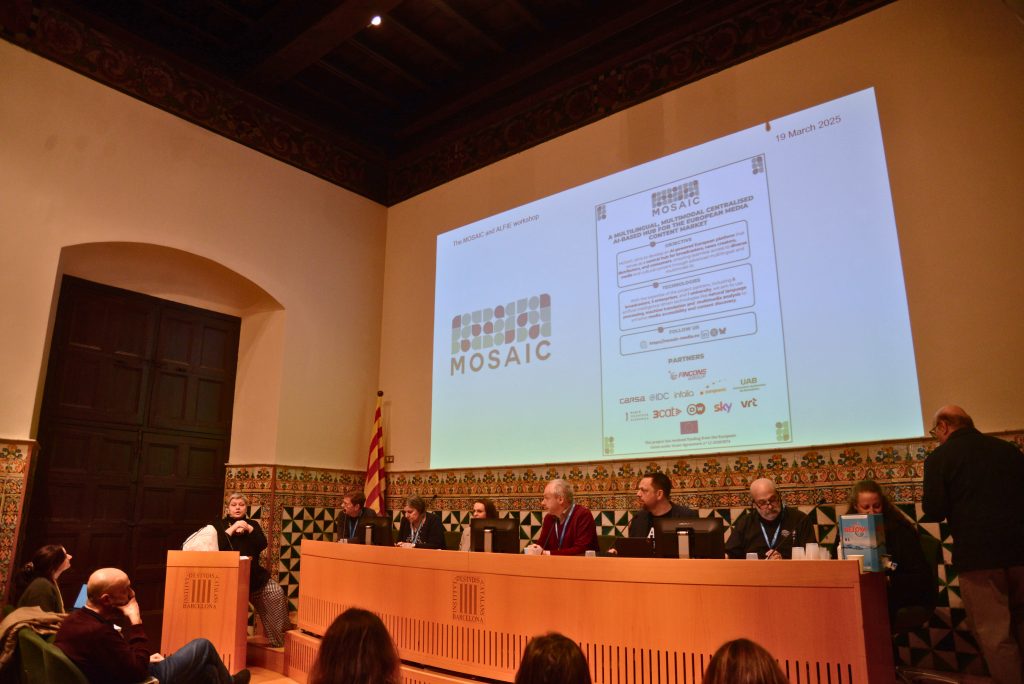
The MOSAIC project was featured at ARSAD 2025, the Advanced Research Seminar on Audio Description hosted every two years by Universitat Autònoma de Barcelona (UAB). This special 10th-anniversary edition welcomed a record 134 participants from around the globe, bringing together experts and stakeholders from across the field of media accessibility.
During the event, Sarah McDonagh, Chiara Gunella, and Pilar Orero from UAB led a MOSAIC workshop, which invited attendees to engage in a dynamic discussion on how artificial intelligence (AI) is influencing the evolution of audio description (AD).
AI and AD: Friends or enemies?
In a unique “battle” format, participants from a diverse range of professions—researchers, trainers, practitioners, regulators, broadcasters, policy makers, and users—debated the benefits and risks of AI in audio description.
Proponents argued that AI enhances tools, improves productivity, and increases accessibility to AD. Critics, however, cautioned that AI might reduce the quality of AD by prioritising speed over creative craftsmanship, displace jobs, and perpetuate biases embedded in training data.
The conversation revealed a rich tapestry of opinions and highlighted the need for thoughtful implementation of AI technologies in the field.
MOSAIC’s Goal: Informed Integration of AI
Central to the workshop was the collection of expert user requirements for the MOSAIC project. These focused on how AI affects employment in the AD sector, the technologies being developed, the quality of outputs, and overall production workflows.
The insights gathered are vital to MOSAIC’s mission of ensuring that AI is integrated responsibly, enhancing—not replacing—human expertise. By grounding technological advancements in user needs and ethical considerations, MOSAIC continues to push for a future where media accessibility is both innovative and inclusive.
Follow MOSAIC as we delve deeper into the potential of AI to transform audio description while staying true to its core values of quality, fairness, and accessibility.
